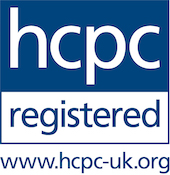
Choosing a therapist
How do you know the therapist you are choosing is credible?
I’m writing this short blog as I have been reading lots of posts on Facebook and Instagram recently. It alarms me that people claim to be qualified in therapies, or call themselves something, that they actually aren’t qualified or sometimes legally allowed to do.
How important is it for you to know, that the person you will be discussing your innermost thoughts and worries with, is actually qualified and experienced working in that field?
It got me thinking that delivering therapy, is most certainly about having the right experience and qualifications, informing the meanings behind your worries and concerns. Its okay reading lots of internet blurb and books ( oh if only clients were like books!) but doing a week-long course in CBT doesn’t give you the skills, knowledge or experience to work with people. And certainly doesn’t give you the right to call yourself a CBT therapist.
I’m always more than happy for people to check me out.
My own personal journey
My journey into the world of therapy started way before 2001 when I decided I needed to find a career that would really nourish me and give me some cash!
I was a single mum with 3 small children. I was really lucky, I didn’t have to go to work ( I say that loosely as being a mum is the hardest unpaid job!) instead as a stay at home mum I was able to enjoy my kids , going to toddler groups and drinking lots of coffee with my mum friends. However, this wasn’t going to last forever as the children would grow up and I would need to earn a living.
Surprisingly this didn’t phase me, in fact, it really excited me. What could I possibly do that would give me a sense of doing something valuable? With no real idea, I started exploring voluntary work and found that the regional head injuries rehab hospital in Newcastle were looking for volunteers. Here I was part of a team that would provide activities in and outside of the hospital for patients who had suffered traumatic brain injuries. It was a wonderful place and I found I was drawn to Occupational Therapy.
Jump forward a year and I had applied to uni and was about to start studying OT. I was nervous, excited but I was very proud of what I had achieved. I can honestly say going to uni was one of the best times of my life. I look back now at the great work based experiences I had and the longstanding friendships I made. But not only that, the confidence and knowledge that I gained.
My career
I am very privileged to have worked for so long ( 18 years ) for an organisation such as the NHS. I have met many many people with chronic and debilitating issues and helping them to accept and even overcome their difficulties has been wonderful. My work journey has spanned physical health, mental health, vocational rehab and I have gained a lot of knowledge and experience.
I qualified as an OT in 2004 and in 2015 I qualified as a CBT therapist, gaining a Masters degree in CBT and complex mental health. A passion for mindfulness got me into teaching it and in 2017 I completed Mindfulness teacher training.
I love being a therapist and I am particularly lucky to have a background in Occupational Therapy. I really love my job as a CBT therapist, working with clients and seeing change is incredible. My OT background has given me a unique perspective. I just seem to think differently and have an insight into how people tick. I am very passionate about helping people have a more hopeful future.
How do you decide if the therapist is right for you?
Its a tricky one isnt it! Sometimes all you have is the internet, or the insurance company will send you along to one of their approved providers. Therapy is such a personal thing and I think it can have lasting effects if you have a bad experience.
Here are some tips to help you decide – 5 tips
Ask a friend or someone in your community who they would recommend
If they offer the first session free, take them up on the call or face to face meeting. It’s a great chance to get a sense of whether you will be able to work with them. You have nothing to lose. It’s actually a two-way thing so that the therapist can see if they can work with you too.
A good therapist should be –
- Empathetic
- Works in collaboration
- Makes you feel at ease
- Gives good feedback
- Is able to explain things in a way you understand
- Keeps up to date with their own learning
- Is knowledgeable about the subject
- Can help you move forward and make small progress

Karen is an English speaking, qualified CBT therapist based in Valencia. She sees clients for face to face, skype/facetime sessions. Our service offers a free first session to talk over your issues and see if we are what you are looking for.
Recent Comments